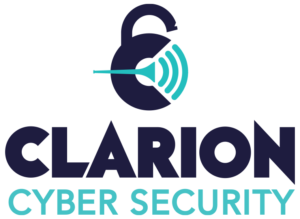Healthcare Cybersecurity
Ensuring the utmost protection of sensitive healthcare information in Salt Lake City, Utah, our healthcare cybersecurity solutions stand at the forefront of digital defense. With a dedicated focus on the unique challenges faced by the healthcare industry, our expert team employs cutting-edge strategies to safeguard patient data, electronic health records, and critical systems. We implement robust cybersecurity measures tailored to the specific needs of healthcare providers in Salt Lake City, offering peace of mind in an era where the confidentiality and integrity of medical information are paramount. Trust us to fortify your healthcare infrastructure against cyber threats, promoting compliance with industry regulations and ensuring the highest standards of security for your patients and practitioners.
What is Healthcare Cybersecurity?
Healthcare cybersecurity is the practice of protecting sensitive electronic healthcare information and systems from unauthorized access, use, disclosure, disruption, modification, or destruction.
Imagine it as a shield guarding confidential patient data, medical devices, and crucial healthcare infrastructure from a range of digital threats.
Here’s a breakdown of its key aspects:
What does it protect?
- Patient data: Names, addresses, medical histories, diagnoses, test results, medications, and insurance information – all highly sensitive and protected by law.
- Medical devices: From pacemakers to smart beds, connected devices offer immense benefits but also vulnerability to hacking, potentially impacting patient safety.
- Healthcare systems: Electronic health records (EHRs), billing systems, communication networks, and other IT infrastructure keep healthcare operations running smoothly and need rigorous protection.
Why is it crucial?
Data breaches and cyberattacks pose significant risks:
- Patient harm: Compromised data can lead to identity theft, insurance fraud, or even physical harm if attackers manipulate records.
- Financial losses: Healthcare organizations face fines, legal costs, and reputational damage from breaches.
- Disruption of care: Cyberattacks can cripple hospital operations, delay diagnoses, and endanger patients.
What are the threats?
- Cyberattacks: Hackers steal data, disrupt operations, or hold systems hostage for ransom.
- Malware: Malicious software infects systems, steals information, or disrupts operations.
- Phishing: Deceptive emails or texts trick users into revealing sensitive information.
- Insider threats: Malicious or accidental actions by authorized users can compromise data.
Key elements of healthcare cybersecurity:
- Compliance with regulations: Healthcare organizations must follow regulations like HIPAA (Health Insurance Portability and Accountability Act) to protect patient data privacy.
- Technical controls: Security software, firewalls, encryption, and secure network configurations are essential.
- Organizational policies: Policies on data use, access control, password management, and incident response are crucial.
- Employee training: Educating employees about cybersecurity risks and best practices is vital.
Healthcare cybersecurity is an ongoing challenge demanding constant vigilance and adaptation. By prioritizing data protection and implementing robust security measures, healthcare organizations can ensure patient information remains safe while maintaining seamless operational performance.
Financially Devastating
Data breaches in healthcare aren’t just privacy violations; they’re financially devastating. According to the 2021 Cost of a Data Breach Report, healthcare organizations now face an average cost of $9.23 million per breach, more than twice the average across all industries. This dramatic figure reflects the immense value of patient data and the severe disruption caused by cyberattacks. The 860 data breaches investigated by the U.S. Department of Health and Human Services in just two years, each exposing sensitive information of at least 500 individuals, paint a concerning picture of a financially vulnerable healthcare system struggling to contain a growing cybersecurity threat.

What are the benefits of Healthcare Cybersecurity?
For individuals:
- Protecting privacy and security: Secure data means your sensitive medical information remains confidential and shielded from unauthorized access, reducing the risk of identity theft, insurance fraud, and other forms of harm.
- Enhancing trust and peace of mind: Knowing your health data is protected fosters trust in healthcare providers and the overall system, allowing you to seek medical care with greater confidence and peace of mind.
- Preventing discrimination and negative effects: Secure data minimizes the risk of discrimination based on your health history or medical conditions, protecting you from negative consequences in areas like employment or insurance.
For healthcare organizations:
- Reducing financial losses: Data breaches can incur hefty fines, legal costs, and reputational damage. Robust cybersecurity measures significantly reduce these risks, saving organizations substantial resources.
- Improving operational efficiency and patient care: Secure systems and protected data ensure smooth operation, prevent disruptions due to cyberattacks, and allow healthcare providers to focus on delivering patient care without security concerns.
- Maintaining legal compliance and avoiding penalties: Healthcare organizations have legal obligations to protect patient data. Implementing strong cybersecurity measures ensures compliance with regulations like HIPAA, preventing costly penalties and legal hassles.
For the healthcare system as a whole:
- Building public trust and confidence: Widespread adoption of robust cybersecurity measures strengthens public trust in the healthcare system, encouraging individuals to seek needed medical services and participate in clinical research.
- Protecting public health infrastructure: Secure healthcare systems are less vulnerable to cyberattacks that could disrupt critical infrastructure and compromise public health data, potentially jeopardizing healthcare services for entire communities.
- Fostering innovation and research: Secure data environments and reliable systems facilitate medical research and innovation, leading to advances in treatments, preventive measures, and overall healthcare quality.
In conclusion, healthcare cybersecurity is not merely a technical issue; it’s a matter of protecting individual privacy, organizational integrity, and the smooth functioning of the healthcare system. By prioritizing cybersecurity, we can build a safer, more efficient, and trustworthy healthcare environment for everyone.
Get a free consultation
Don’t wait for a breach to take action. Invest in your patients’ protection and safeguard your organization’s future. Schedule your free consultation today! We’re here to help you build a robust and secure healthcare environment.
